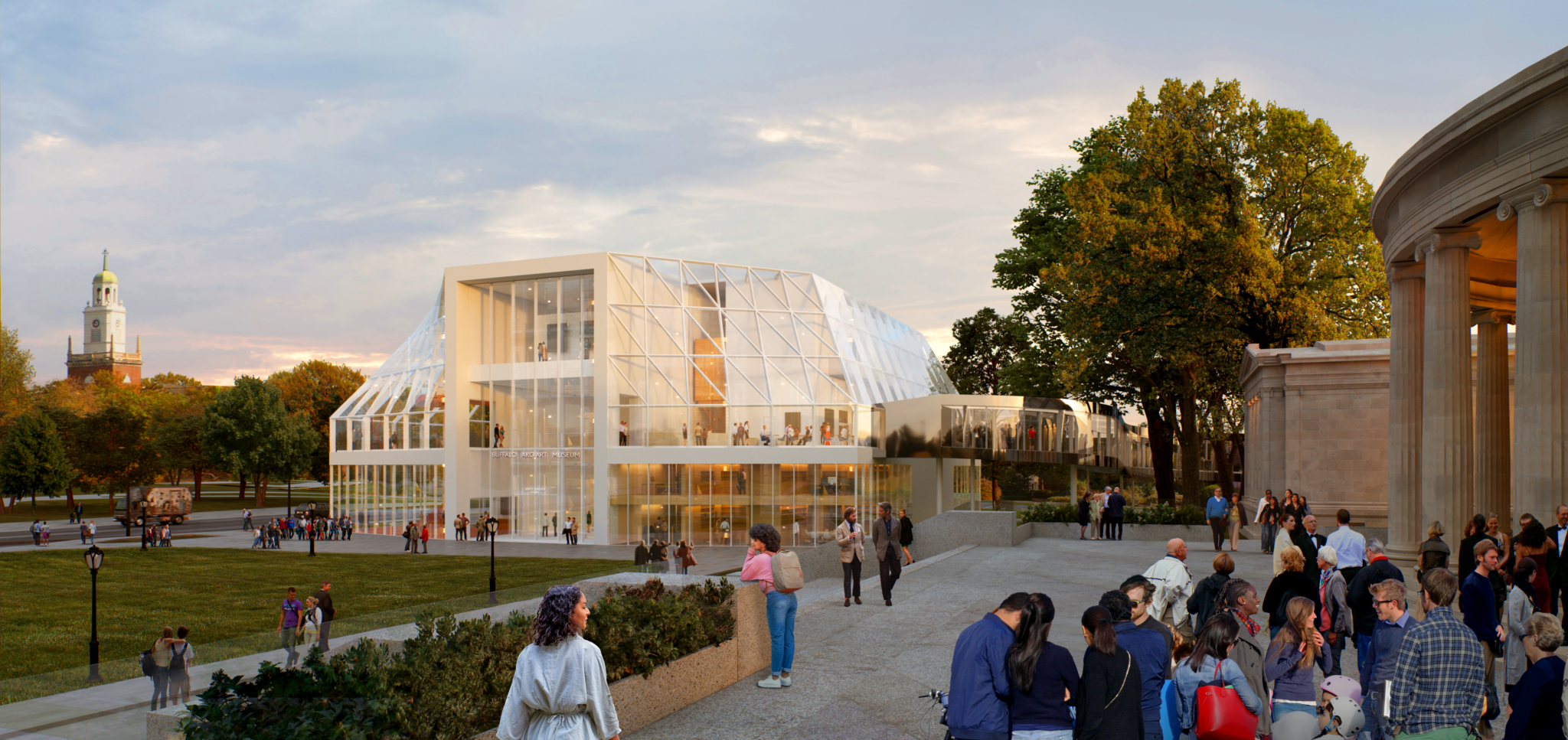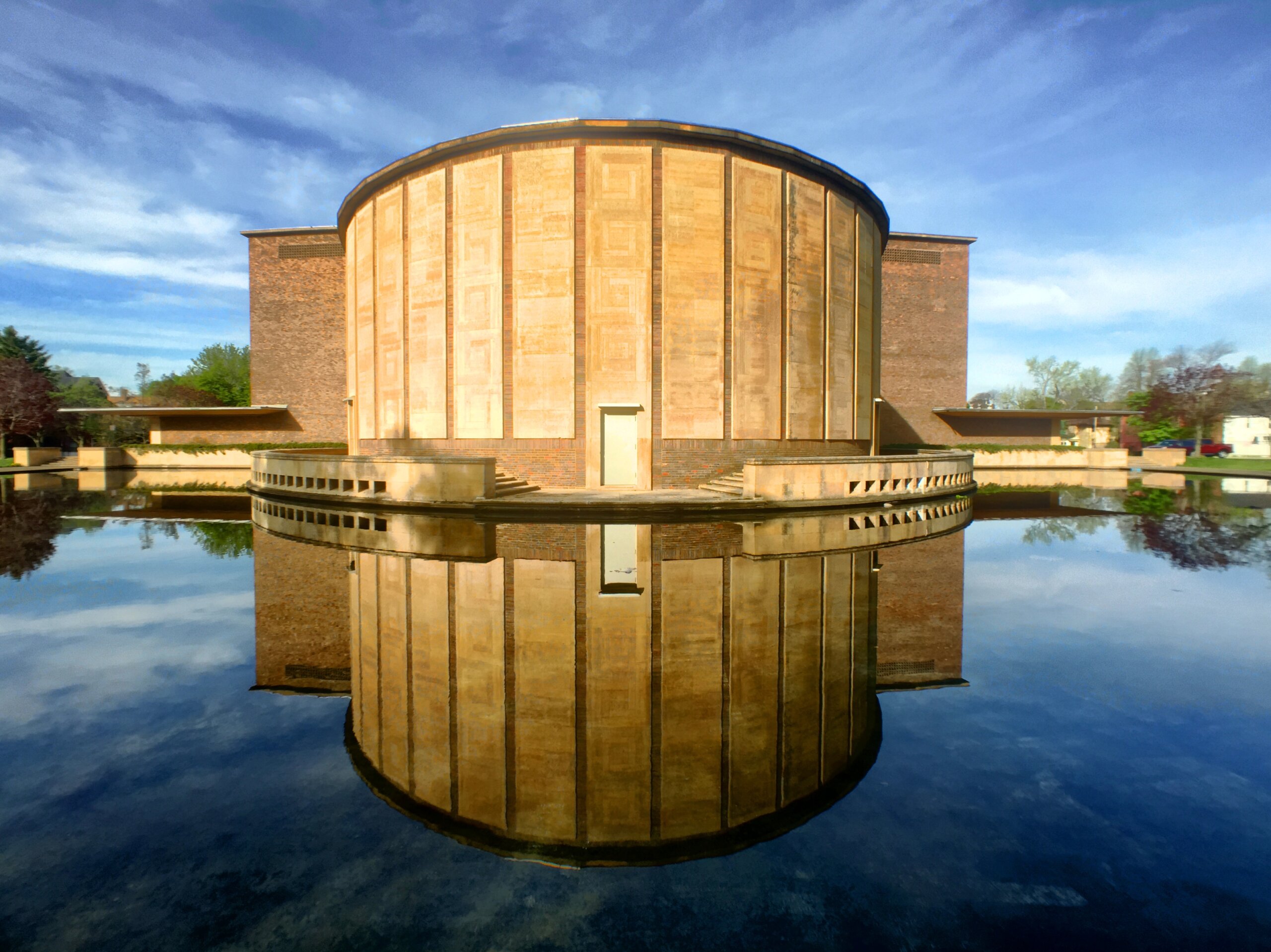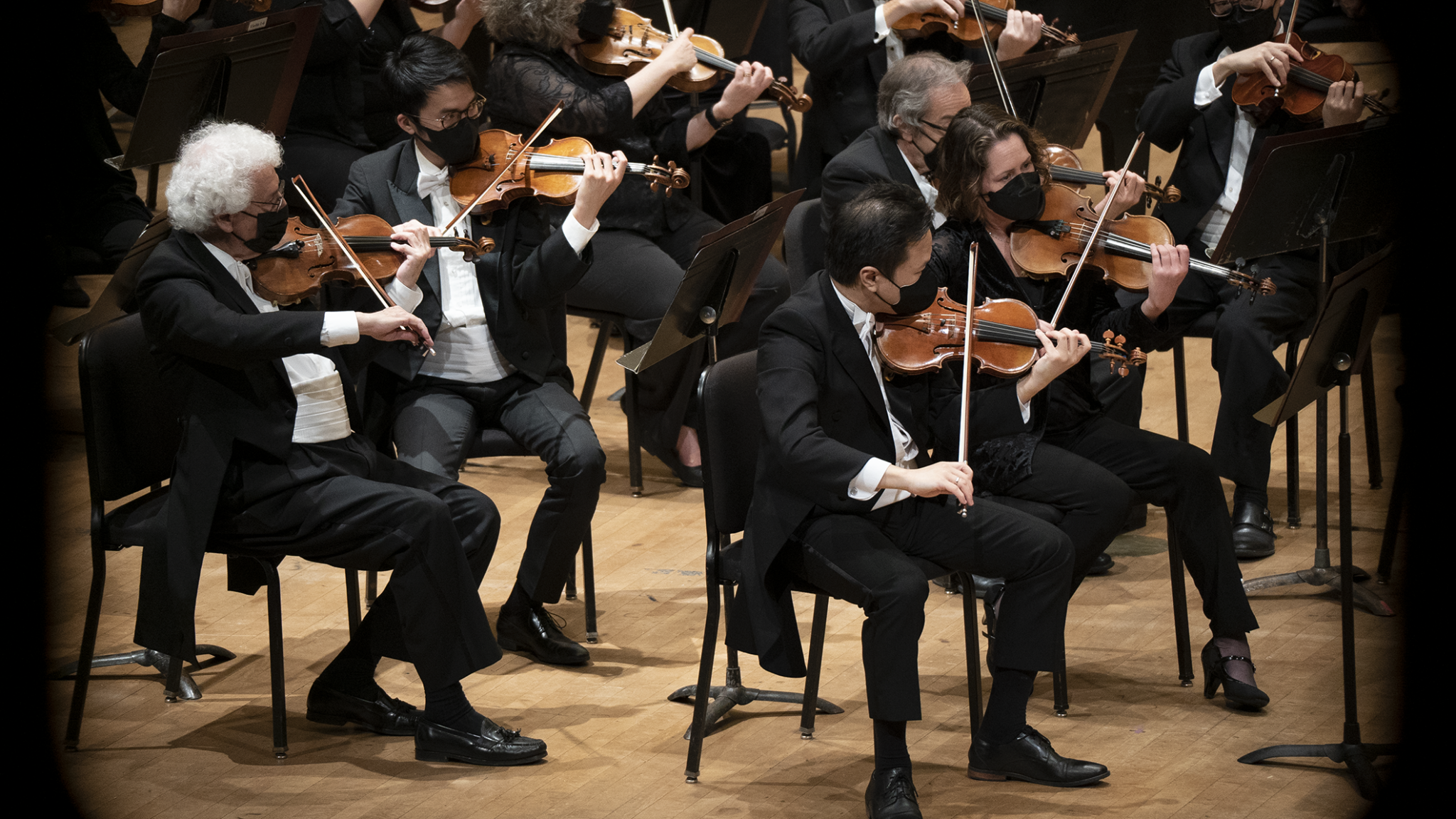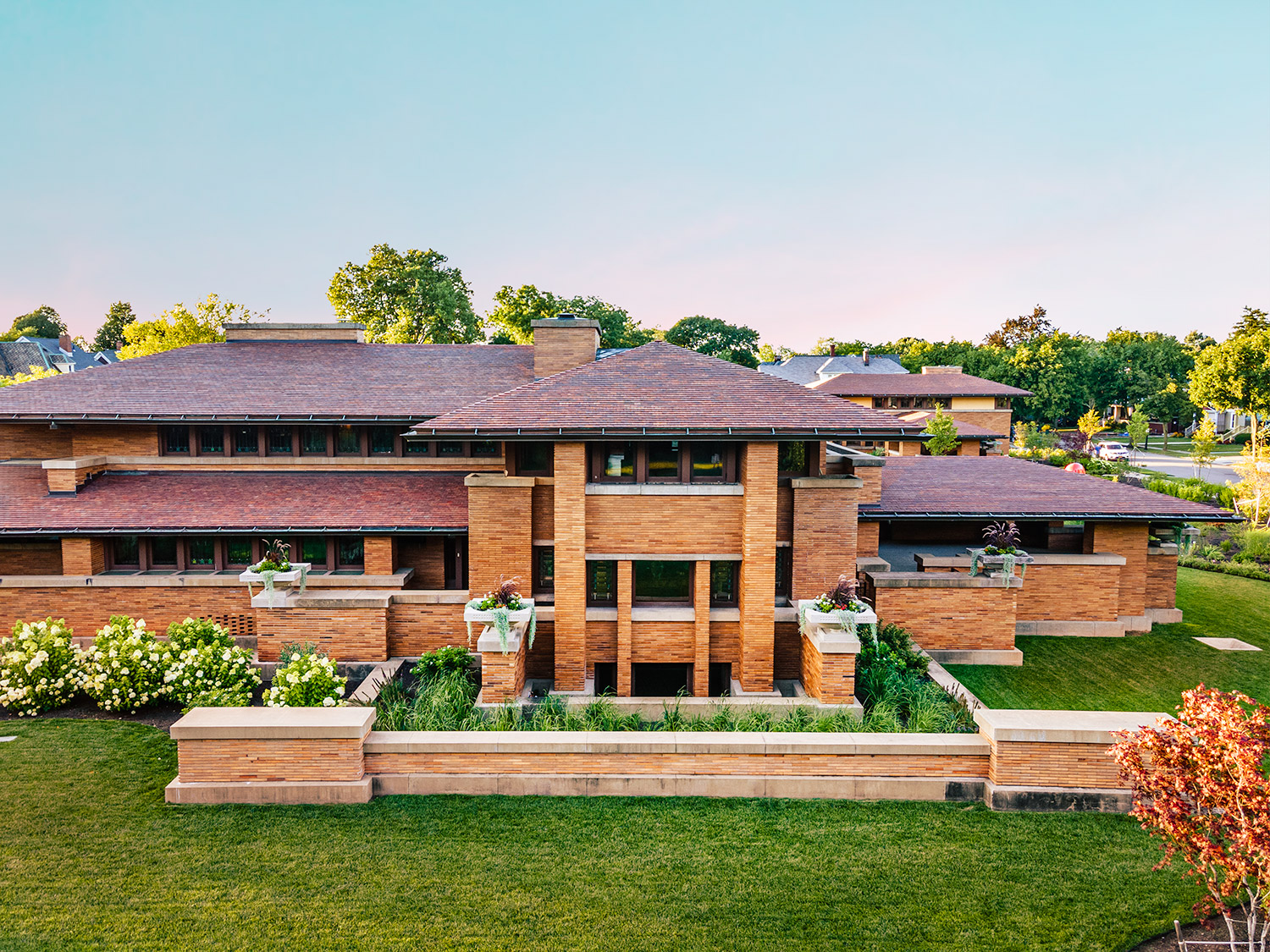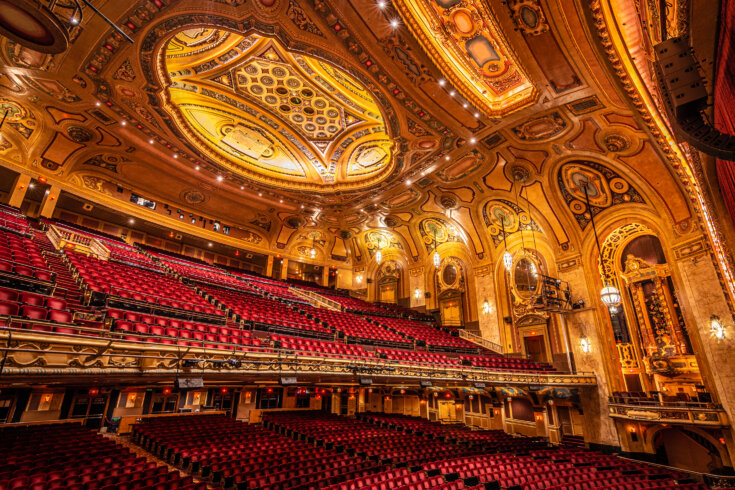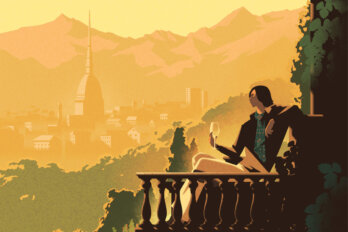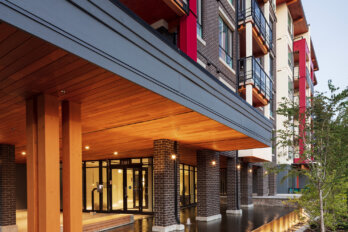Itmay come as a surprise to some, but Buffalo, New York, has long been home to progressive museums, architectural masterworks, and a history of generous patronage. And right now, the city is in the middle of a never-before-experienced cultural renaissance.
At the centre of this renewal is the Buffalo AKG Art Museum (formerly the Albright-Knox Art Gallery). Housing masterpieces by the likes of Renoir, Kahlo, Pollock, and Warhol, the museum has been building its collection since 1863. Now nearing the completion of a 30,000-square-foot expansion, the Buffalo AKG is entering a whole new chapter in its storied history.
“This project is not just about the Buffalo AKG—it’s about Buffalo,” says Janne Sirén, the Peggy Pierce Elfvin director at the Buffalo AKG Art Museum. “It’s about the resurgence of the city to the forefront of global audiences.”
A New Era for Buffalo Art
Set to debut in late spring/early summer 2023, the Jeffrey E. Gundlach Building is the Buffalo AKG campus’s newest masterpiece: a three-storey glass structure designed by Shohei Shigematsu of OMA. In addition to accommodating a larger variety of modern art mediums, the Gundlach Building also doubles as the museum’s exhibition space, allowing the Buffalo AKG to display more of its world-class collection at any given time.
With more than $195 million raised to date, the project is the largest capital campaign for a cultural institution in Western New York’s history. Thanks to generosity from the community, organizations like the Ralph C. Wilson, Jr., Foundation, and financier Jeffrey Gundlach—who helped fund the expansion through matching challenges—Buffalo will soon be home to an art museum that rivals both the Guggenheim and the Whitney Museum of American Art in stature.
“This is Buffalo’s moment,” says Sirén. “And I think there’s a lot of excitement around that moment, both within Buffalo and beyond.”
Mastery Restored
The Buffalo AKG is far from the only place you’ll find masterpieces in Buffalo. From parkways designed by Frederick Law Olmsted to Minoru Yamasaki’s One M&T Plaza, the city is home to works by many of America’s greatest architects.
No name in Buffalo’s rich design history, however, holds quite the same weight as Frank Lloyd Wright.
Wright was brought to Buffalo early in his career by businessman Darwin Martin to design both the Larkin Administration Building and Martin’s own estate. The relationship forged between the two men would last decades, leading to the construction of Martin’s summer home, Graycliff, on the shores of Lake Erie years later.
But of all Wright’s Buffalo-area works, the Martin House is by far his most acclaimed. The 1.5-acre estate, originally completed in 1905, is widely considered the defining design of Wright’s early years, and one of the most significant of his whole career. And, thanks to a nearly thirty-year restoration effort (completed in 2019), visitors can experience the Martin House in all its glory once again.
Comprised of six interconnected buildings, the Martin House stands as a monument to Wright’s organic architecture approach, while also displaying the architect’s eye for detail through furnishing, light fixtures, and decorative elements, including the iconic “Tree of Life” windows.
“This is very innovative architecture. It’s architecture that inspires its visitors with the power of design in harmony with nature,” says Mary Roberts, who recently retired after serving as Martin House’s executive director since 2006. “The buildings force you to think and feel differently.”
Buffalo in the Spotlight
Another spectacular preservation and restoration story can be found at Shea’s Buffalo Theatre, part of a three-theatre complex in the heart of Buffalo’s Theatre District known as Shea’s Performing Arts Center.
Built in 1926 as a movie palace, Shea’s Buffalo Theatre was given new life in the early 1980s as a venue for Broadway touring productions. A full restoration maintained the theatre’s original artwork and furnishings, while an expansion in 1999 gave the theatre one of the largest stages in the United States—all while keeping the space’s gilded beauty intact.
To date, Shea’s Buffalo Theatre has launched seven national Broadway tours—including Frozen, Tootsie, Harper Lee’s To Kill a Mockingbird, On Your Feet, Finding Neverland, Mean Girls, and Charlie and the Chocolate Factory—while also hosting concerts, stand-up comedy, and other shows suitable for the historic venue. In addition, Shea’s Performing Arts Center offers an array of educational programming.
Not too far from Shea’s is another pillar of Buffalo’s cultural renaissance: the Buffalo Philharmonic Orchestra. Led by acclaimed music director JoAnn Falletta, the BPO presents an eclectic program of classical, pop, youth, and family concerts from its home in Kleinhans Music Hall. Renowned for its extraordinary acoustics and elegant modernist design, Kleinhans is a National Historic Landmark designed by Eliel and Eero Saarinen, the most famous father-son duo in the architectural world.
Wonders in Progress
While Buffalo’s heritage sites, collections, and theatres are already impressive, the city isn’t done creating new works. Murals by some of the world’s most renowned street artists—Eduardo Kobra, Felipe Pantone, Shantell Martin, and Louise Jones, among others—are bringing an explosion of colour to the city’s streets and creating one of the most vibrant public art attractions in the world.
4 More Must-See Stops in Buffalo
The Freedom Wall
This Buffalo AKG Public Art Initiative project includes twenty-eight portraits of civil rights leaders painted by Buffalo artists at the corner of Michigan Avenue and East Ferry Street.
Silo City
Located along the Buffalo River, these grain silos now loom over poetry readings, music festivals, and other creative community events.
Buffalo Arts Studio
A community-centric, affordable space for visual art creation. Visitors can peek into any of the thirty on-site studios to see works as they take form or chat with the artists.
The Buffalo Olmsted
Park System
Six parks, seven parkways, eight landscaped circles, and several spaces designed by Frederick Law Olmsted.
With a revitalized waterfront, an exploding craft beer scene, a reinvigorated culinary sector fueled by immigrants and recent arrivals, and the ongoing reinvention of historic sites like the grain elevators found at Silo City, Buffalo is experiencing an unprecedented cultural renewal and civic resurgence.
“Buffalo is one of the great hidden cultural treasures of the world,” says Sirén. “But it won’t be for too long, because the buzz around Buffalo is becoming louder and louder.”
A special supplement from the attractions of Buffalo, NY.
For more information, visit buffalolovescanada.com

